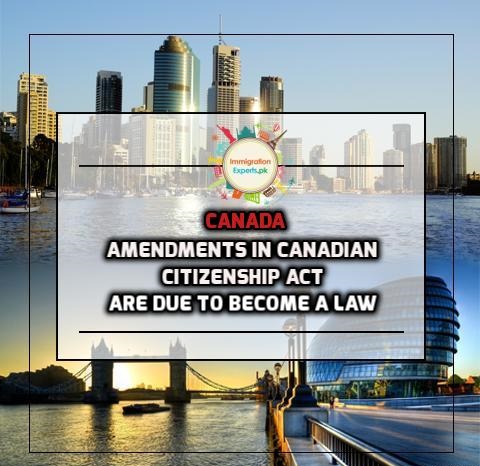051 8439995, 042 35911332

The Bill C-6 is a legislation, meant to introduce such changes, through which it would be quite easy for the permanent residents to attain the status of Canadian citizenship. This legislation is now much closer to become a law. According to a tweet posted by Canadian Senator Mobina Jaffer on June 15, the bill is awaiting royal assent, which will probably be received soon.
Proposed changes
The Citizenship Act is going to receive various changes through the Bill C-6. Most of these will undo the amendments made by the Conservatives through the Bill C-24 in 2014. This Bill C-6 may change the residency requirements required for applying for Canadian citizenship. At present six years residence is necessary for permanent residents to apply for Canadian citizenship, which may be minimized to just three years out of five, after approval of this bill.
The reduction in a number of days regarding physical presence in Canada is another positive factor of Bill C-6. The person applying for Canadian citizenship, need to be physically present in Canada for not less than three years. Moreover, the permanent residents can count the time spent in Canada prior to obtaining permanent residence to fulfill the requirement of permanent residence.
After the approval of Bill C-6, the “Intent to Reside” provision may not be necessary. At present, it is obligatory for an applicant to show his /her intent with respect to reside in Canada after seeking Canadian citizenship. In addition, this bill would curtail government’s authority to set aside one out of dual citizenship.
Amendments made by Senate
The Bill C-6 may minimize the barriers to avail Canadian citizenship. The following amendments made by Senate are the core features of this bill.
- The age requirement for permanent residents with a view to show their acquaintance for Canadian culture and language ability in French or English may change to 18 to 54 after approval of the Bill C-6 .
- The second amendment proposed by Senate will enhance the chances of children less than 18 years of age to file an application to become Canadian citizenship. These children may seek citizenship independently, in the absence of their parent’s consent or support.
- Last but not the least, the third amendment may offer a right to appeal for those who have lost their citizenship, allegedly obtained through fraudulent means. Such individuals may seek the right to get their case referred to the Federal Court.
After receiving royal assent, the Bill C-6 will surely cast a positive effect on the lives of new Canadian residents.

